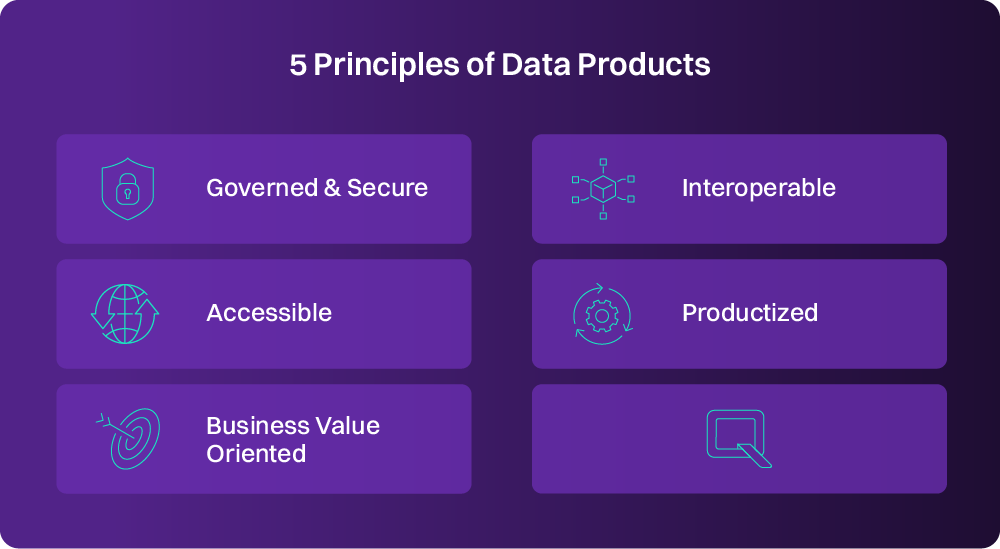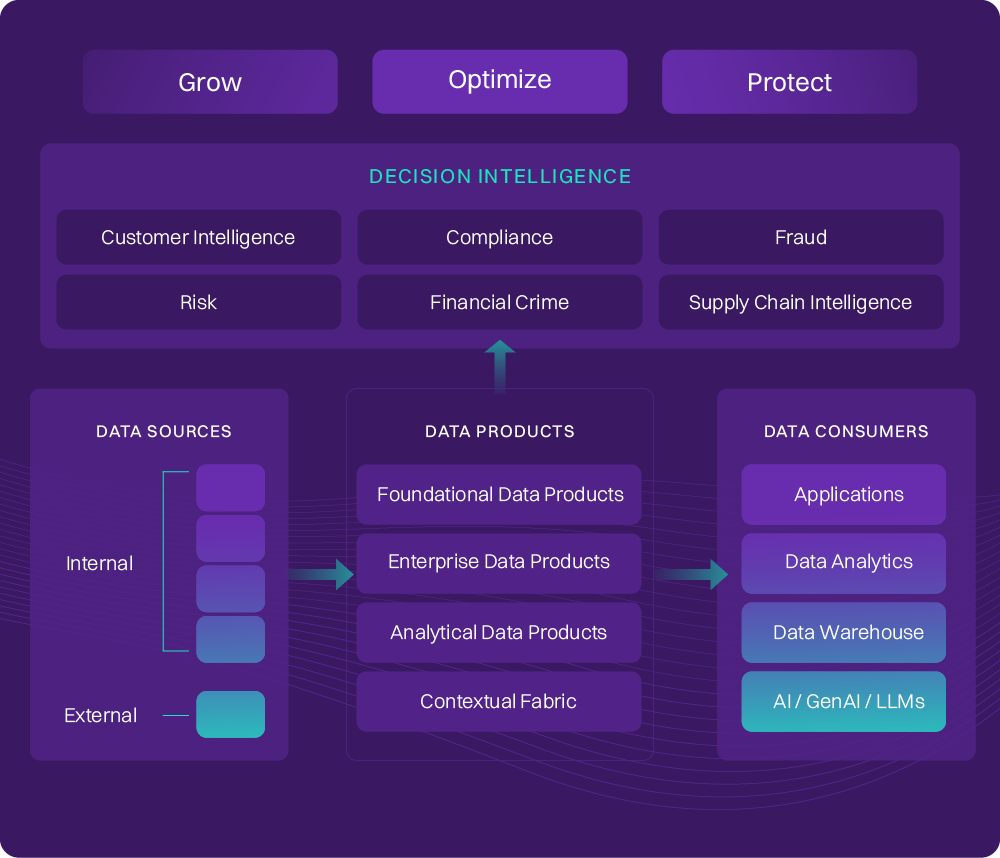Data Products and Decision Intelligence Are Rewriting The Rules of MDM
Traditional MDM is dead. It's data products and decision intelligence that are the key to ensuring agility, democratization of data, and measurable business impact.
Master Data Management (MDM) has one promise: to deliver a single source of truth that everyone in the organization can trust and use across data systems. However, traditional MDM methods often fall short of this promise, with challenges such as massive data volumes, messy legacy applications, rigid data warehouses, and organizational resistance to change. Today, data for analytics and AI is not just to serve the business but to help transform it.
Two heroes are rising to fill the void left by traditional MDM’s inefficiencies: data products and decision intelligence. These solutions don't aim for just a single truth; they strive to integrate flexibility, accessibility, and business results into enterprise data strategies.
Driving a transformational shift with data products
If MDM is about controlling data assets, data products are about setting them free.
The idea behind data products is simple, yet transformative. It’s based on treating data as a product itself, prepared for reuse and stored within a centralized catalog, creating an internal marketplace where teams can access trustworthy information easily and efficiently. The benefits are multiplied: faster delivery, agility, governance, and the ability to democratize data.
Delivering data products is how data teams can work together with business teams to unlock value and enable faster decision-making and scalable innovation. The economics of data products are grounded in their simplicity–reuse plus business value–balancing cost efficiency with measurable enterprise gains.
5 principles of data products
We’ve identified five core principles that data products need to maintain to deliver value to the business. Data products must be:
Governed and secure
For data products to be trusted, the data included in them need to be well-governed. This means implementing privacy policies, secure maintenance practices and clear documentation on metadata, ownership and lineage.Accessible
Business teams can easily search for and find data products they need to achieve their objectives. The documentation and data governance structure around data products enable trust in data and increase usage.Business value-oriented
Data products deliver most value when they enable business solutions–across risk, customer intelligence, fraud, and financial crime–encapsulating all the domain expertise and context. It’s truly a collaboration between data and business teams to maximize the value of data.Interoperable
Data products are only as useful as their ability to integrate with the applications and systems that people regularly use.Productized
Data products are, well, products. They need clear ownership, service level agreements, and a roadmap based on continuous user feedback for improvement.

How decision intelligence enhances decisioning from data products
Decision intelligence is the ideal complement to data products. While data products establish a trusted, scalable, and reusable foundation for information flow, decision intelligence builds on that foundation to automate and enhance decision-making across business units.
By leveraging high-quality data products, decision intelligence becomes both more efficient and more impactful. Trusted data enables greater opportunities for automation—not just in analytics and AI-driven decisions, but also in how data itself is managed and operationalized. When the underlying data is accurate and reliable, the decisions derived from it are more trustworthy, consistent, and aligned with business goals.
Together, data products and decision intelligence empower organizations to optimize operations, drive revenue growth, and strengthen risk management—turning data into a strategic asset for smarter, faster decisions.

The new path to business transformation
To truly harness the value of data products and decision intelligence, the best practice is to build a robust data foundation while delivering incremental business improvements. Master data remains foundational but pairing it with the flexibility of data products can rejuvenate enterprise data ecosystems.
Data leaders can, and should, take action today. Traditional methods of MDM can no longer meet the complexities of today’s data, AI and business environment. Instead, embrace data products and decision intelligence to ensure agility, democratization, and measurable business impact.
Learn more about how to revolutionize data management for your organization with decision intelligence here.





